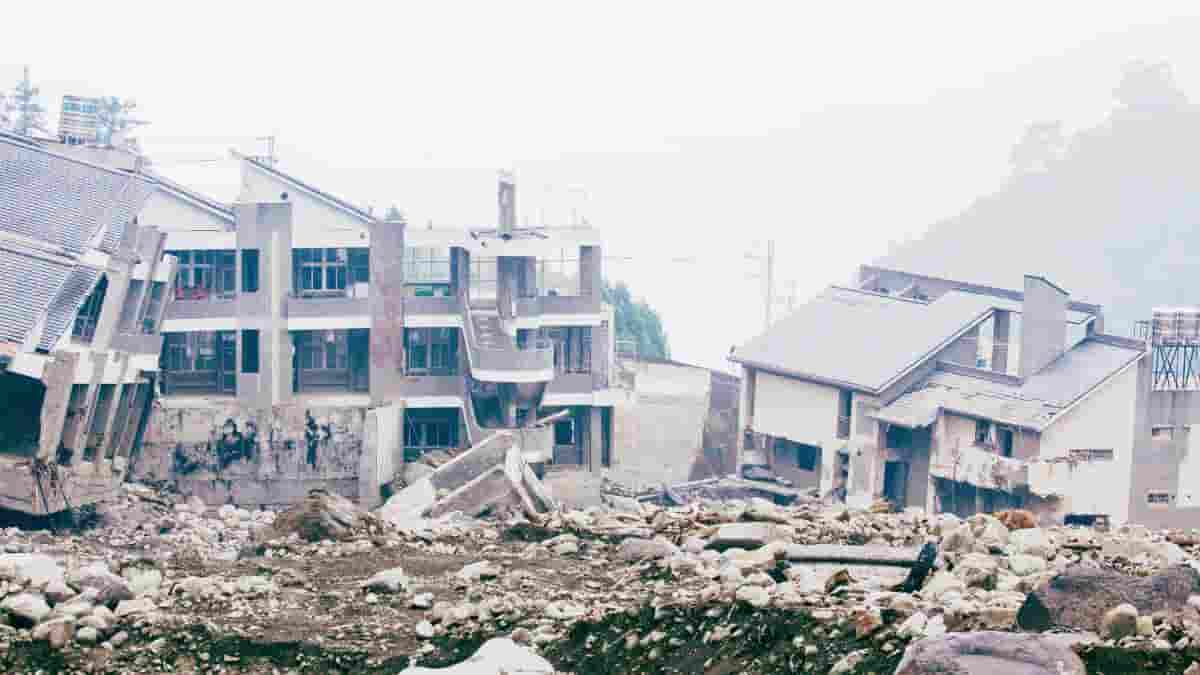Long-term disasters’ long-term reminders of death influence people’s choices and behaviors, according to a new study by King’s College London researchers. The study found that long-term reminders of death, such as the COVID-19 pandemic and the climate change catastrophe, damage people’s ontological security (their sense of regularity and the world being safe and predictable) over time.
This threat to ontological security causes a shift in behavior, particularly in consumer behavior, as materialistic purchases became less important than experiences with others, and more efforts were made to re-establish this sense of normalcy.
The main idea of ontological security is that people maintain specific routines and patterns in order to imbue their lives with order and meaning, avoid overwhelming anxieties, and maintain safety and trust in the world.
Previous research indicates that when confronted with short-term reminders of death, such as terrorist attacks, riots, and natural disasters such as flooding, earthquakes, or severe storms, people become more selfish and concerned about their own well-being and safety, acting more impulsively as consumers.
Natural Disasters vs Man-made
King’s scholars discovered that the sort of disaster (natural versus man-made, such as terrorist attacks), the extent of the disaster, and the duration of the disaster can all influence people’s behavior.

In a comparison of people’s coping mechanisms in the face of natural and man-made disasters, researchers conducted 35 focus groups in the UK, Germany and France. They found that for disasters that disrupted people’s daily routines and their overall ontological security over longer periods of time, like the COVID-19 pandemic, materialistic purchases were no longer as important as experiences with others.
The study also discovered that their actions reflected an attempt to reestablish ontological security.
“For me, visiting family and friends’ houses and being able to do that without any restrictions suddenly felt valuable. Taking the kids to playdates and being more involved with their lives, meeting with family and friends for that pizza, or going to the cinema for that movie, all of that felt very fresh, and that somehow, we are regaining our normality. I am even excited about planning a summer holiday abroad with extended family members,”
one Male study participant said.
Unconscious Awareness of Death
Major continuing disasters, such as the COVID-19 epidemic and wildfires, have kept people from seeing their families and friends, disrupting their sense of security and daily life.
Such events have altered how people subconsciously think about death, and it has an impact on us. We are living in an era of constant crisis, so this sense is with us whether we realize it or not.
“Our research found that over a prolonged period, the unconscious awareness of death affected people’s behaviors. In contrast to impulse buying and splurging, our study has shown people are compassionate and caring for others in their attempts to provide experiences to reconnect with family and friends, and it is these behaviors that are due to a need to re-establish a sense of security,”
said Dr. Rayan Fawaz, lead author of the study.
“These findings demonstrate we can better understand how people respond to serious events or natural phenomenon that threaten personal safety and security, and how short or long-term reminders of death can inform personal behaviors. At the heart of these behaviors are attempts to recreate a sense of security. One silver lining is that the temporality of the disaster may trigger positive outcomes and enable marketers to act more responsibly,”
Professor Shintaro Okazaki, professor of marketing, added.
Abstract
While prior consumer studies have adopted various theoretical perspectives to explain individuals’ reactions to disasters, scant attention has been paid to the role of ontological security in shaping those responses. This study attempts to fill this knowledge gap by qualitatively exploring ontological security in two contexts: man-made and natural disasters. To this end, we conducted 35 focus groups in the UK, Germany, and France to address how people reacted to terrorist attacks and the COVID-19 pandemic respectively. Through thematic analysis, three themes emerged: fear versus anxiety, oneself versus others, and materialistic versus experiential purchases. Man-made disasters appear to elicit fear, concern for self, and a preference for materialistic purchases, whereas natural disasters seem to trigger anxiety, concern for others, and a preference for experiential purchases. Both types of disasters seem to evoke a desire to escape from reality. In closing, we discuss both transitory and prolonged threats to ontological security and how they shape individuals’ behaviours while restoring their security.
Reference:
- Fawaz, R. S., Bourliataux-Lajoinie, S., Roessner, A., & Okazaki, S. (2023). What do we know about consumers’ ontological security in disaster scenarios? International Journal of Consumer Studies, 47(4),1483–1499. Doi: 10.1111/ijcs.12926
